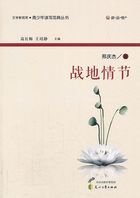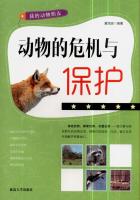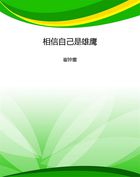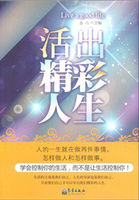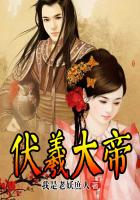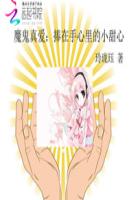Though not primarily nostalgic,Singer??s work returned back to a former time.The setting for much of the work was his native Poland,and the writing addressedexistential and spiritual questions through folk tales and parables. These works caughtthe attention of a number of American writers including Saul Bellow and Irving Howe,who were greatly responsible for not only translating Singer??s work,but championingit as well. Throughout the 1960s Singer continued to write on questions of personalmorality. One of his most famous novels ( due to a popular movie remake ) wasENEMIES: A LOVE STORY,in which a Holocaust survivor deals with his owndesires,complex family relationships,and the loss of faith. Singer also wrote twonovels about nineteenth century Polish-Jewish history before returning to more moderntopics in the 1970s.
By the 1970s,he had become a major international writer . After World War Ⅱthere were few Yiddish writers remaining and Singer was not only a vocal proponentof Yiddish writing,but also the major figure in Yiddish letters. Throughout the 1970she wrote dozens of stories that were eventually collected into books,and published inYiddish and English as well as many other languages. He branched out,writingmemoirs and children??s books as well as two other major novels set in the twentiethcentury,THE PENITENT ( 1974 ) and SHOSHA ( 1978 ) . The same year as hispublication of SHOSHA,Singer won the Nobel Prize in literature. For many,thisaward was bittersweet in that it brought worldwide attention to an important languageat the same time it seemed to signal the language??s demise.
After being awarded the Nobel Prize,Singer gained a monumental status amongwriters throughout the world. He continued to write during the last years of his life,often returning to Polish history which so entranced him throughout his early life. In1988 he published THE KING OF THE FIELDS and three years later,SCUM,a storyof a man living in an early-twentieth-century Polish shelter. That same year,IsaacBashevis Singer died at the age of eighty-seven in Surfside,Florida. Incrediblyprolific,Singer created an insightful and deep body of work that will forever remainan important part of literary history.
Notes on language a nd cultur e
1. Parable: A parable is a short story,which is told in order to make amoral or religious point,like those in the Bible.
2. Rabbinical: Rabbinical refers to the teachings of Jewish religious teachersand leaders.
3. Yiddish: Yiddish is a language which comes mainly from German and isspoken by many Jewish people of European origin.
4. contributor: Contributor refers to a person who contributes to a magazine,newspaper,or book he writes things that are publishedin it.
5. nostalgic: Nostalgic things cause you to think affectionately about thepast.
6. holocaust: The holocaust is used to refer to the killing by the Nazis ofmillions of Jews during the Second World War .
7. proponent: If you are a proponent of a particular idea or cause of action,you actively support it.
8. memoir : A person??s memoirs are a written account of the people whothey have known and events that they remember .
9. demise: The demise of something or someone is their end or death.
10. entrance ( verb) : If something or someone entrances you,they cause you to feeldelight and wonder,often so that all your attention is taken upand you cannot think about anything else.
C. Post -r eading a ctivity
Read and fill the following lines.
Topic:
Main idea:
Support:
Conclusion:
Ⅳ. Fast Read in g
In this part,you are required to read three passages and choose the best answersfor the questions after each passage,trying to use the skill you have just learned.
( 1)
The crowning moment in Isaac Bashevis Singer??s life was when he received theNobel Prize for literature in 1978. This recognition of Singer??s writings also glorifiedthe beauty and power of the Yiddish language.Born in Radzymin,Poland,on July 14 ,1904,in a long lineage of rabbis,Singer was one of four children. He was educated in the Jewish schools and at onetime he was enrolled in a rabbinical seminary. When he was four,his family movedto Warsaw.
In 1917 ,Singer moved with his mother to his maternal grandmother ,who livedin a small town. Here he learned about Jewish life in the slum,which would becomea topic for his short stories and novels.
In the early 1920s,Singer went to Warsaw to join his older brother ,IsraelJoseph,who was to write such works as The Brothers Ashkenazi and Yoshe Kalb.Singer joined his brother despite the vigorous objections of his parents,who wantedhim to become a rabbi. In Warsaw,he obtained a job as a proofreader for a Yiddishliterary magazine. Interested in writing,he first tried to do so in Hebrew,but since itwas used only for prayer,he switched to Yiddish. By 1926,Singer was writing bookreviews and short stories. In 1932,he became co-editor of Globus,a Yiddish literarymagazine. In 1935 ,he left his first wife,Rachel,and his son,Israel,to immigrate toAmerica to join his older brother in New York City,where he became a freelancewriter for the Jewish Daily Forward. Many of his novels were serialized in theForward and,in 1950,his novel The Family Moskat was translated into English byAlfred A. Knopf ,Inc. Singer became instantly famous and he received the LouisLamed Prize. An Italian translation,in 1968 ,won him Italy??s Bacarrella Prize.
Many of Singer??s writings have reflected his experiences as a youth in Poland.
The slum,mysticism,folklore,the supernatural and religion were his themes. He alsowrote stories for children and was acclaimed for Zlateh The Goat and Other Stories,achildren??s book about animals,children,and supernatural creatures.
After he divorced Rachel,Singer married Alma Heimann,a refugee fromGermany. A vegetarian,he and his wife both loved living creatures and spent a greatdeal of time in the park feeding the birds.
1. When did Singer flee Nazi Europe and come to America?
A. In 1917. B. In 1926. C. In 1935. D. In 1950.
2. In which year,Singer went to Warsaw to join his older brother ,Israel Joseph?
A. 1904. B. 1920 . C. 1950 . D. 1978.
3. Which of the following statements is NOT true?

